***
Japan trip
Day 5 - 10th June - Kiyomizudera Temple, Jishu Shrine, Kyoto (Part 6)
(You can read a great page about the temple and learn stuff I didn't know while visiting. Doing your homework is nice, but it's very time-intensive and unless you print everything out you won't have it to hand while visiting the place - which negates most of the benefit anyway)
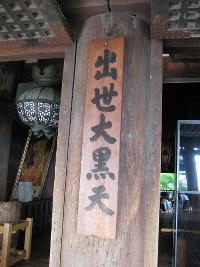
”出世大黑天“
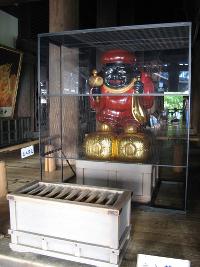
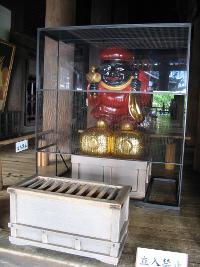
Darkie God
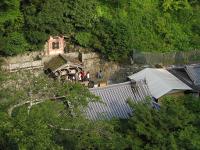
Looking down from the temple building on stilts

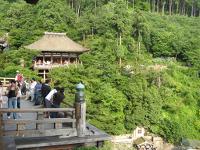
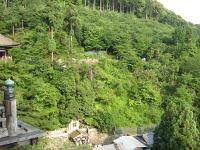
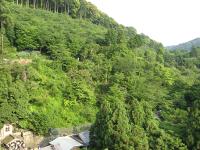
From the temple building on stilts
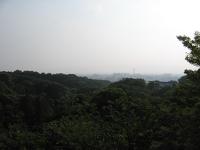
City View
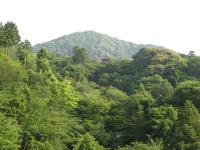
Hills

Me
Next was the Jishu Shrine. It seems that after the Meiji Restoration, the Japanese Government separated the Shinto shrines located in Buddhist temples and vice versa, relocating or destroying one of the two; Jishu was one of the few that survived.
Although the Temple closed at 6, the Shrine closed at 5, which I didn't know. Luckily I arrived just before 5, so I could buy the Love Amulet requested by someone. Luckily too, the premises themselves weren't closed at 5.
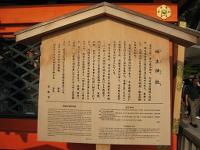
Jishu Shrine plaque
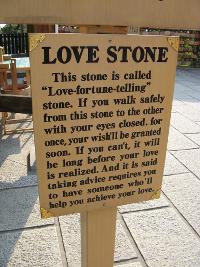
Love Stone blurb. Given the copious English at this shrine you know it's popular with tourists.
"This stone is called “Love-fortune-telling” stone. If you walk safely from this stone to the other with your eyes closed, for once, your wish’ll be granted soon. If you can’t, it will be long before your love is realized. And it is said taking advice requires you to have someone who’ll help you achieve your love."
I didn't read the fine print so didn't know about 'cheating' (getting someone to help you).
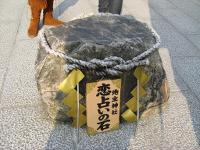
One of the stones
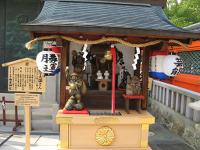
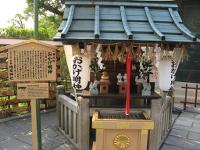
Shrines: "Fulfilment of Various Wishes Nade-Daikoku-San. If you pat this bronze statue 'Nade-Daikoku-San' (Daikoku to be patted), your prayer will be answered
Okage-Myo-Jin. The Japanese cedars behind were used for 'Ushinotoki-mairi' or '2a.m. visit' which was popular among ladies the old days. They would nail a straw doll on the cedar as their enemies putting a curse. We can find lots of marks of the nails on the left of the back of the trees even now"
Incidentally, I wonder whether voodoo is more popular among men or women.
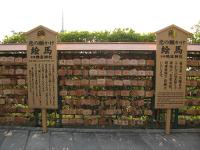
Ema
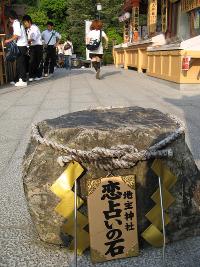
Woman doing the walk
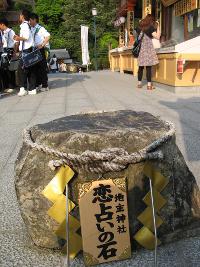


The Path
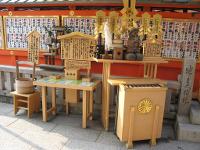
"Please write down your troubles on this paper doll and put it into the water nearby. When the paper dissolves in water, your troubles will be cleared up"
I was wondering if they were going to ask you to drink the water, but maybe only the Chinese do that
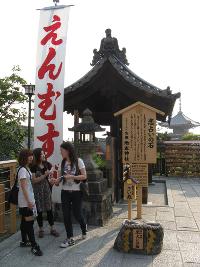
Various shrine merchandise:
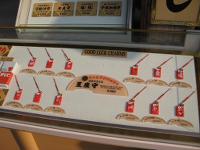
There're charms tailored to your Western Zodiac sign (wth - syncretism?!)
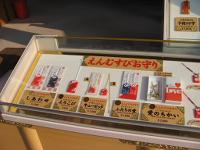

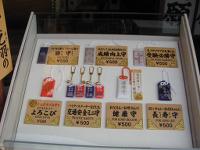
"Find Love" is Y500 and "More Chance for Love" is Y1000. Maybe the latter is more powerful. Or the former finds you your love but doesn't make you love love you.
Since this shrine is for love, presumably the love charms from it are more powerful.
In the end, I tried walking the path between the stones myself. I was told I was doing alright until I tripped and lost my orientation, overshooting a lot. This explains a lot; all is made clear.
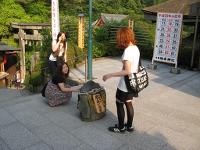
This one was 'Cheating': the other 2 talked to her so she knew where to walk towards. Now she'll need someone to facilitate her love.
Note the use of a disposable camera.
Although, even at this late hour, there were still quite a few people at the shrine, apart from the 3 girls pictured above, all of whom (IIRC) tried the walk and all of whom (IIRC) 'cheated', only some attempted the walk (and IIRC one schoolboy was the only male to do so). Maybe they were all afraid of failing.
More 'Cheating'
The third of the trio also 'cheated'. Hurr hurr.
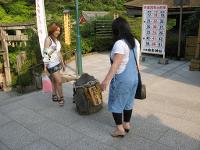
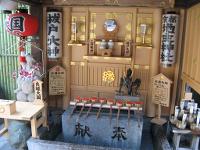
Washing up point
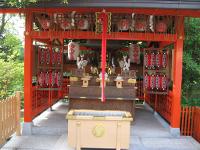
Inari makes an appearance
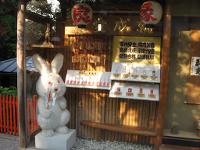
Attack of the Killer Rabbit. Notice the ema with a huge rabbit attacking a girl in green.
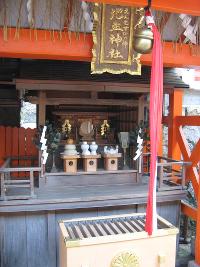

What seemed to be the main Shrine, and strange offerings
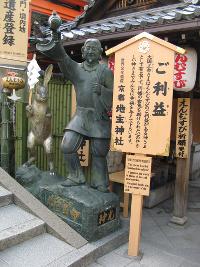
Love God and Killer Rabbit (notice its ominous red eyes, upright posture and dangerous weapon held aloft)
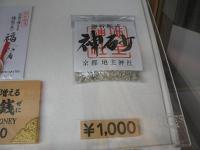
Holy Gravel (?!)
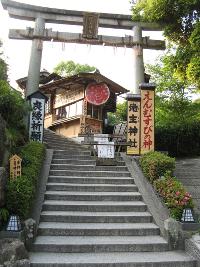
Shrine entrance

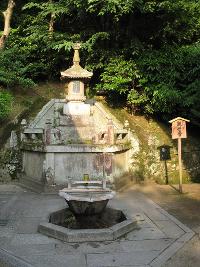
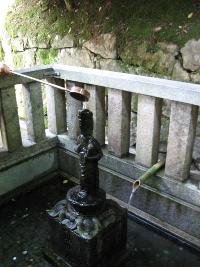
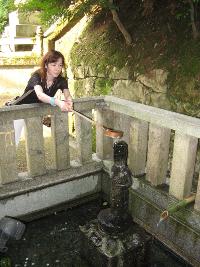
From their actions this should be: "the Nurete Kannon (Water-soaked Kannon); an image of Kannon in a water basin. To pour water over the image is considered an act of purification."
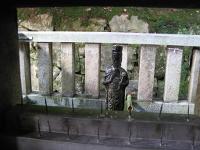
Nurete Kannon (Water-soaked Kannon)
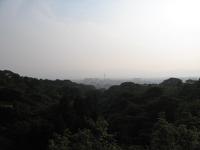
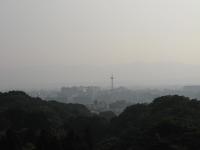
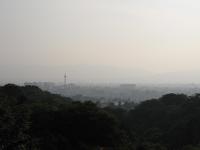
A view (not) to kill for
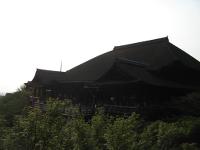
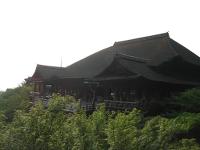
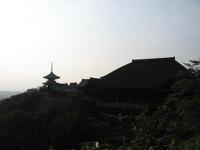
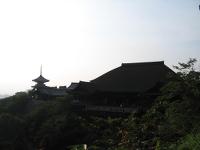
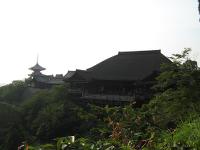
Silhouetted temple
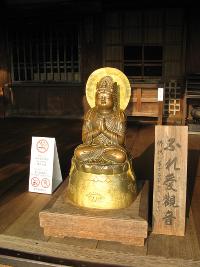
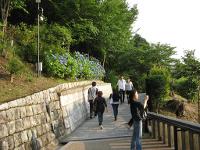
Flowers


